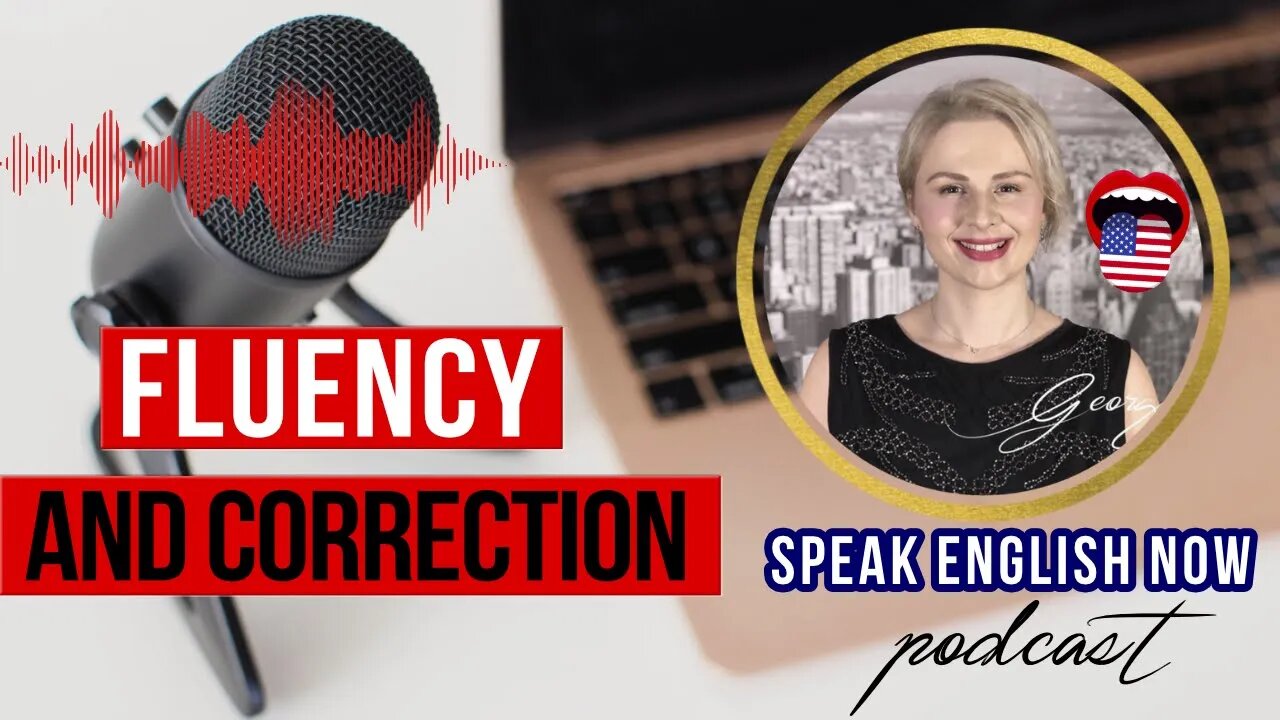Premium Only Content

239 Fluency and Correction when Speaking English
239 Fluency and Correction when Speaking English
Get the transcript here: https://SpeakEnglishpodcast.com/podcast
Today, I’d like to take a closer look at a common issue faced by many learners of English: the proper usage of various verb tenses, as well as the potential mistakes they can make.
First, you should bear in mind that native speakers tend to use fewer verb tenses when speaking compared to when they are writing.
In other words, spoken language is more direct and simple. And that’s good news!
So, why does this happen?
We can consider how to articulate our ideas best, select suitable grammar structures, and more when writing. However, when speaking, there is no time to think about how to construct a sentence.
Secondly, when learning a language, there is often a conflict between two components.
These two elements are fluency and self-correction.
By fluency, I mean the ability to produce the language with few pauses, and by self-correction, I mean the perception that what you are saying may be wrong, and consequently, you self-correct.
To illustrate this point, let’s assume that Tom is an English learner with a low level of fluency.
Tom has to make a significant effort to find the right words, finish sentences, and so on. He is probably mentally translating from his native language to English and the other way around.
While Tom is in a conversation, struggling to finish sentences, the last thing Tom can think about is whether he is making any grammar errors. It’s hard enough trying to keep the conversation going.
If Tom wants to reduce the number of errors, he will need to pause frequently for several seconds to ponder the best way to express himself. Even so, he will make mistakes.
This last scenario is quite common in traditional language schools. Teachers often require students to speak from the beginning without errors, even if they can barely articulate sentences. Consequently, this hinders fluency, preventing students from relaxing and enjoying basic conversations.
So, what is the solution? The key is to follow the natural process of language acquisition.
First, you need to listen many times to the same language patterns so that they become automatic in your mind. This way, you can gradually focus on making fewer mistakes. That’s why I often insist you should be listening to simple content repeatedly.
When you are fluent, you have the intuition that something sounds right. This happens because you have heard the same language patterns thousands of times.
In short, to gain mastery of the various verb tenses used in conversations and reduce mistakes, the key is to cultivate fluency.
-
 16:04
16:04
Speak English podcast with teacher Georgiana
2 years ago252 Words and Phrases to Describe Small Quantities in English
6401 -
 LIVE
LIVE
LIVE WITH CHRIS'WORLD
10 hours agoTHE WAKE UP CALL - 11/24/2025 - Episode 12
351 watching -
 LIVE
LIVE
BEK TV
2 days agoTrent Loos in the Morning - 11/24/2025
169 watching -
 LIVE
LIVE
The Bubba Army
2 days agoF1'S NEWEST DRIVER? - Bubba the Love Sponge® Show | 11/24/25
1,700 watching -
 19:15
19:15
Nikko Ortiz
19 hours agoOstrich Gets A Taste For Human Blood
55.2K16 -
 32:42
32:42
MetatronHistory
1 day agoWas FASCISM Left wing or Right wing?
9.01K32 -
 LIVE
LIVE
Flex011
5 hours ago $0.01 earnedFrom Scrap to Stronghold: Our Base is Live!
78 watching -
 9:52
9:52
MattMorseTV
14 hours ago $15.43 earnedTrump just GAVE the ORDER.
18.7K53 -
 LIVE
LIVE
PudgeTV
1 hour ago🟣 Arc Raiders - Gaming on Rumble | Monday Madness
63 watching -
 LIVE
LIVE
Max
7 hours agoMax Streaming
48 watching